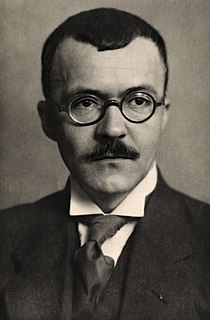A Quote by John Dryden
Not sharp revenge, nor hell itself can find, A fiercer torment than a guilty mind, Which day and night doth dreadfully accuse, Condemns the wretch, and still the charge renews.
Related Quotes
Our bones ache only while the flesh is on them. Stretch it as thin as the temple flesh of an ailing woman and still it serves to ache the bone and to move the bone about; and in like manner the night is a skin pulled over the head of day that the day may be in a torment. We will find no comfort until the night melts away; until the fury of the night rots out its fire.
Sharp knives seemed to cut her delicate feet, yet she hardly felt them, so deep was the pain in her heart. She could not forget that this was the last night she would ever see the one for whom she had left her home and family, had given up her beautiful voice, and had day by day endured unending torment, of which he knew nothing at all. An eternal night awaited her.
Mind is dual, it always divides things into polar opposites: the conqueror and the conquered, the observer and the observed, the object and the subject, the day and the night. It goes on dividing things which are not divided. Neither is the day divided from the night, nor is birth divided from death. They are one energy. But mind goes on dividing everything into polarities, opposites. Nothing is opposite in existence; every contradiction is only apparent. Deep down all contradictions are meeting together.
Until recently each generation found it more expedient to plead guilty to the charge of being young and ignorant, easier to take the punishment meted out by the older generation (which had itself confessed to the same crime short years before). The command to grow up at once was more bearable than the faceless horror of wavering purpose, which was youth.
He that doth righteousness; that is, righteousness which the gospel calleth so, is righteous; that is, precedent to, or before he doth that righteousness. For he doth not say, he shall make his person righteous by acts of righteousness that he shall do; for then an evil tree may bear good fruit, yea, and make itself good by doing so; but he saith, He that doth righteousness is righteous; as he saith, He that doth righteousness is born of him.
The two parties which divide the State, the party of Conservatism and that of Innovation are very old, and have disputed the possession of the world ever since it was made ... Now one, now the other gets the day, and still the fight renews itself as if for the first time, under new names and hot personalities ... Innovation is the salient energy; Conservatism the pause on the last movement.






































